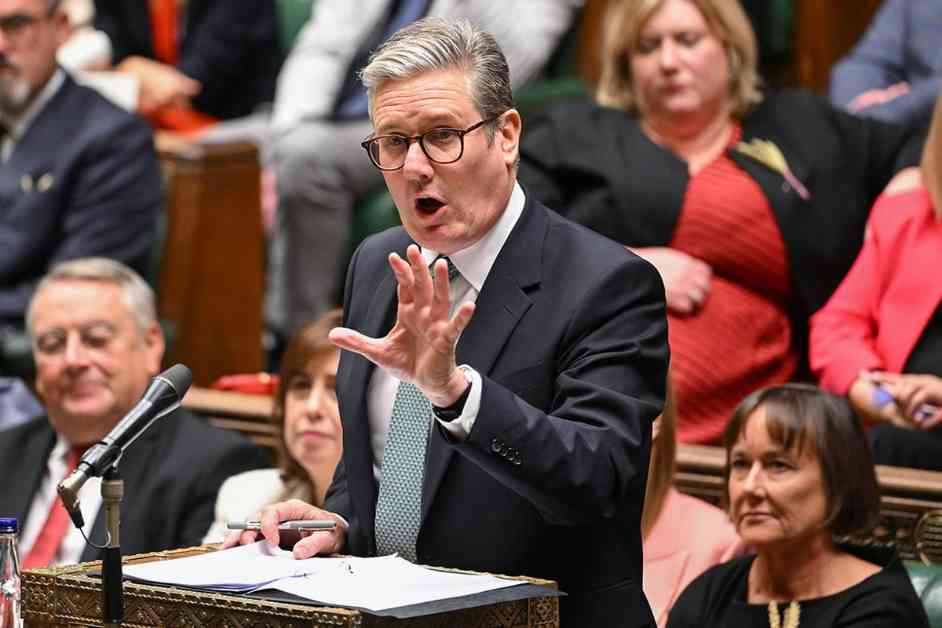The impact of the lack of a winter fuel payment cut assessment on policy decision-making has come under scrutiny following Prime Minister Keir Starmer’s admission that no such assessment was conducted by the government. This revelation has raised concerns about the potential consequences for pensioners, especially those living in fuel poverty.
Government’s Admission
In response to a parliamentary question, energy minister Miatta Fahnbulleh stated that the Department for Energy Security and Net Zero had assessed the effect of cutting the universal winter fuel payment on pensioners living in fuel poverty. However, Prime Minister Starmer later contradicted this claim by admitting that no assessment had been carried out to predict the impact on death and illness rates among pensioners.
This admission has sparked criticism from various quarters, with many questioning the government’s decision-making process and its commitment to supporting vulnerable groups such as pensioners. The lack of a comprehensive assessment has left many concerned about the potential consequences of cutting the winter fuel payment, particularly for low-income households just above the threshold for eligibility.
Pressure to Publish Assessment
The government’s refusal to publish an impact assessment of the policy change has faced mounting pressure, with calls for transparency and accountability growing louder. The decision to means-test winter fuel payments for the first time has raised alarm bells among advocacy groups and opposition politicians who fear that it could lead to increased hardship for millions of pensioners.
The Department for Energy Security and Net Zero’s reluctance to disclose when the impact assessment would be made public has only fueled speculation and mistrust. Despite promises to release the document “in due course,” the government’s evasiveness has only deepened concerns about the potential ramifications of the policy change.
Keir Starmer’s Justification
In defending the decision to cut the winter fuel payment, Prime Minister Keir Starmer cited a £22 billion black hole in public finances left by the previous government as the primary reason for the move. He argued that the government had to make difficult choices to address the fiscal challenges it inherited, including cutting certain benefits to reduce expenditure.
However, critics have accused Starmer of failing to consider the human cost of such decisions, particularly for vulnerable groups like pensioners. The lack of a comprehensive impact assessment has raised doubts about the government’s commitment to safeguarding the well-being of its citizens, especially those most in need of support.
Impact on Pensioners
The decision to means-test winter fuel payments has raised concerns about the potential impact on pensioners, many of whom rely on this benefit to stay warm during the cold winter months. With around 10 million people set to lose the payment, there are fears that low-income households just above the threshold for eligibility could face increased financial hardship.
The lack of a thorough assessment of the policy’s effects on pensioners has left many in the dark about the potential consequences of the decision. Without concrete data on how many pensioners could be at risk as a result of the cut, it is difficult to gauge the full extent of the policy’s impact on vulnerable groups.
Call for Action
As concerns mount over the lack of transparency surrounding the winter fuel payment cut, calls for action are growing louder. Advocacy groups, opposition politicians, and concerned citizens are urging the government to reconsider its decision and conduct a comprehensive impact assessment to ensure the well-being of pensioners is taken into account.
The government’s failure to provide a clear rationale for cutting the winter fuel payment without a thorough assessment has raised questions about its commitment to protecting the most vulnerable members of society. As the debate rages on, it remains to be seen whether the government will heed calls for greater transparency and accountability in its decision-making process.












